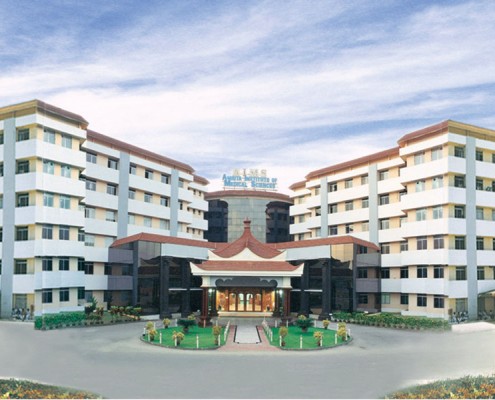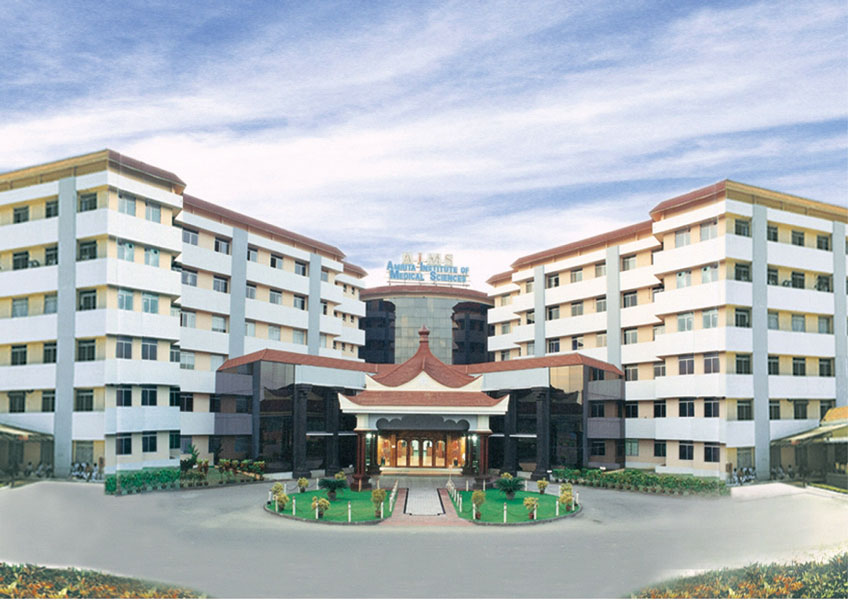January 07, 2015
The first centre for integrated study, research and patient care in Allopathy, Ayurveda and Yoga will come up in Kochi, Kerala under the Amrita University. The Amrita Institute of Integrated Medicine and Research Centre is planned as a centre to integrate the holistic vision and therapeutic range of Indian systems of healthcare with the analytical, diagnostic and prognostic proficiency of modern medical sciences.

Amrita School of Ayurveda and Hospital, Amrita School of Biotechnology both in Kollam, Amrita Institute of Medical Sciences and Research Centre, Amrita Centre for Nanosciences and Molecular Medicine and Amrita School of Pharmacy – all under the Amrita University will be part of the integrated Centre, which will come up in Kochi.
“There is considerable room for studying interdisciplinary avenues between the modern and Ayurvedic treatment strategies, which will help the common man in India to seek a better and more holistic approach to health,” explained Dr. Prem Nair, Medical Director of Amrita Institute of Medical Sciences, Kochi. “The purpose is to bring Ayurveda and Yoga into the mainstream healthcare in India.”
The Centre will bring out replicable guidelines for introducing and practicing integrated healthcare at various levels besides facilities for study and research. It will utilise non-pharmacological and non-technological healing spectrum, including psycho-physiological interventions, behavioural therapeutic measures and spiritual inputs to improve well-being; record and present the experimental knowledge in scientific forums to create awareness and network with physicians from Modern Medicine, Ayurveda, Yoga and other systems of Indian medicines, who are in alignment with the concept.
The research areas will mainly focus on validation and development of formulations for diseases/clinical conditions known to have effective treatments in Indian systems of medicine, medicinal plant research, drug standardisation research, pharmacology research – pre-clinical safety, toxicity and biological activity studies, literary research and documentation, nanotechnology and Ayurveda research, tribal healthcare research, healthcare services, information, education and communication, and clinical research.
The Centre will also have facilities for pharmacognosy of raw drugs, phytochemical studies of drugs, physic-chemical constants of single drugs and formulations. It will also endeavour to revive and retrieve texts from ancient manuscripts/rare books, collection and compilation of references relating to drugs and diseases from classical treatises, lexicographic work, contemporary literature and publications related to Ayurveda and other medical systems.
It also seeks to develop appropriate training modules and guidelines and research on integrative oncology.
The Centre envisages introducing modules or short courses on principles of Ayurveda into MBBS, MSc Biotech, MTech (Nanomedical Science), MTech (Molecular Medicine), offering PhD programme in Ayurveda and interdisciplinary PhD programmes; international training and teaching programme in Ayurveda, etc.
The Centre has a component to make available ayurvedic medicines at low cost. It will also contribute to enhancing the Ayurvedic Biodiversity of India through farming of rare species, organic farming to improve the quality of ayurvedic plants, encourage farmers to cultivate ayurvedic plants; training villagers to manufacture Ayurvedic formulations through low-cost pharmaceutical engineering in a small-scale set up.

